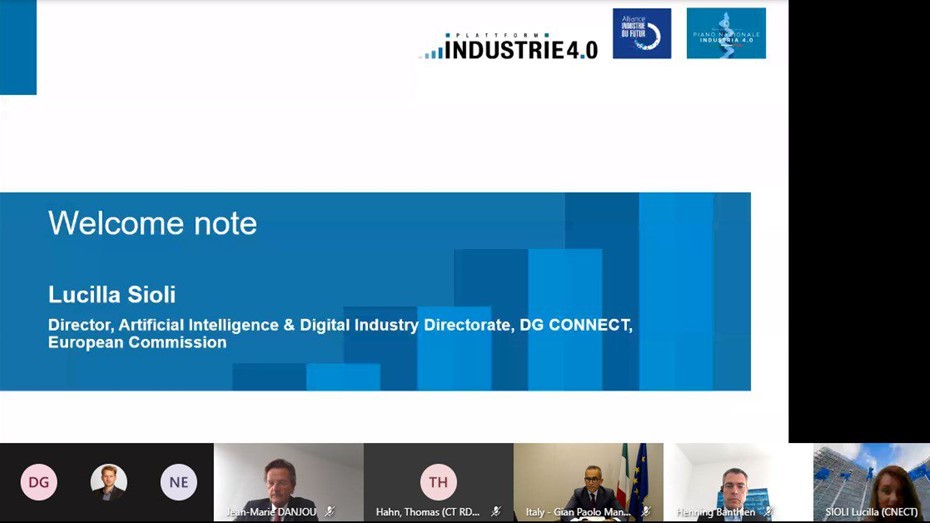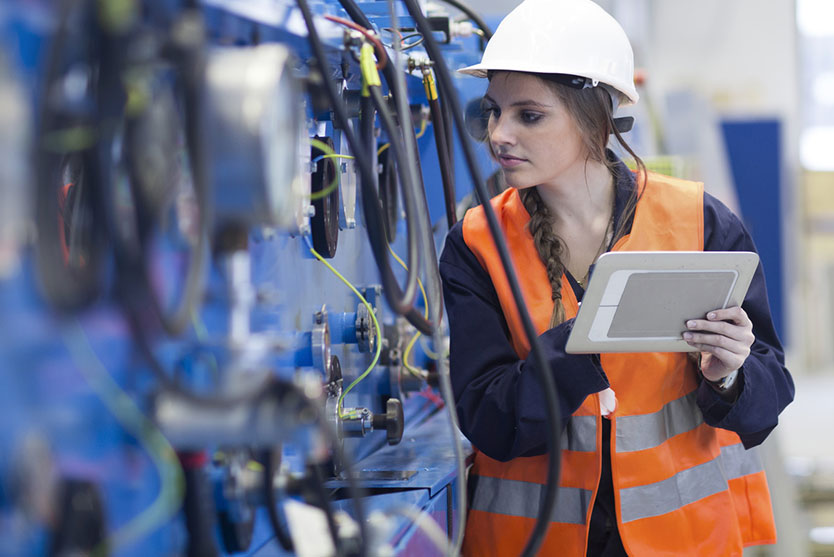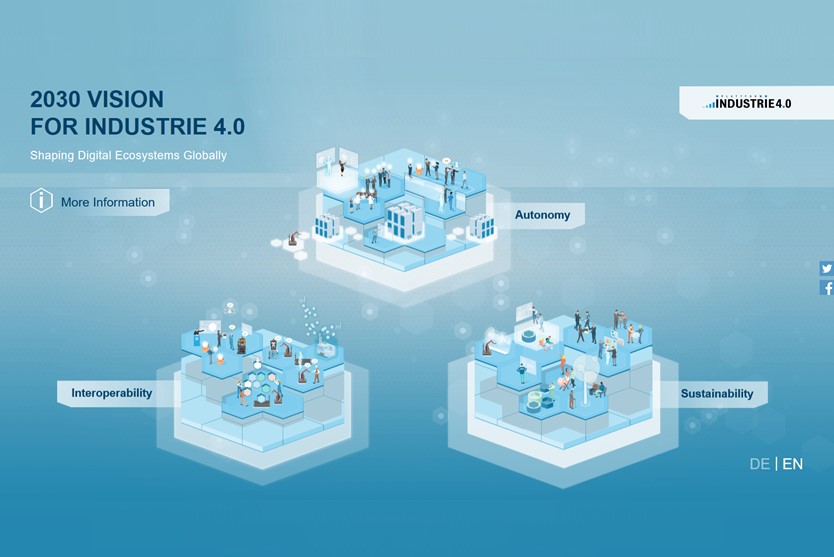
The vision
There was agreement among the participants on the screens: The pandemic has shown that it is now time to act. Lucilla Sioli, Director, Artificial Intelligence & Digital Industry Directorate, DG CONNECT stated: „European cooperation is key – apart from the COVID-19 crisis, there will be many more challenges that we need to and can tackle together.“ It is time to launch open and digital ecosystems in Europe and create the conditions for a competitive, resilient and sustainable path to growth for European industry. This means ensuring more flexible, resilient, resource-efficient production processes and optimised value-adding structures. Open and digital ecosystems could achieve this. Not only do they build on diversity, plurality and fair competition, they also promote it in the long term. And they make a social contribution to cushioning the COVID-19 crisis.
The path
For Dr Peter Post, Vice President at Festo and member of the Steering Committee of the Industry 4.0 Platform, three lines of action are crucial on the path to open ecosystems. This is because they are closely linked to key European fundamental values: sovereignty, interoperability and sustainability.
Sovereignty stands for the requirements that must be met. In line with the 2030 vision of the Plattform Industrie 4.0, these result from a pan-European, sovereign, trustworthy, secure and resilient digital infrastructure (as defined by the GAIA-X project). Speaking about the prerequisites for using AI, Michael Jochem, Business Chief Digital Office -Industrial Technology at Bosch and head of the working group "Security of networked systems" in the Plattform Industrie 4.0, explained: "Innovative, multilateral B2B cooperation across company and competition boundaries is essential for data to be collected. We need a trustworthy infrastructure that supports data sovereignty in order to facilitate the aforementioned data exchange".
Other important requirements include training targeted at SMEs and a general cultural change. The need for cross-border cooperation and digital European competence centres, where experiences and best practices can be exchanged, was also highlighted.
Interoperability describes the need for general standards for the smooth interaction between digital components, systems and processes (administration shells and digital twins), said Dr Post. It is an essential prerequisite for avoiding lock-in effects and for giving smaller companies fair access to digital value-added networks - this is particularly important for European industry, which is characterised by small and medium-sized enterprises.
Sustainability is the common goal. Data analysis and secure B2B data exchange form the basis of a resource-efficient data economy and thus also for 4.0 applications that make the potential for sustainability measurable and sustainability goals concretely truly feasible (e.g., reducing emissions). Industry 4.0 solutions support the implementation of sustainability goals in terms of the European Green Deal.
Kilian Gross, Head of Unit, Technologies & Systems for Digitising Industry Unit, DG CONNECT summed it up: „Green economy and digitalisation are not contradictory, but reinforce each other. We need to adopt an holistic approach to digitalisation and sustainability to reach a green and competitive transformation of economy in Europe – and we need cooperation to bridge this gap quickly.“
What’s next?
We now need to create the conditions for the competitive, resilient and sustainable growth of European industry, so that Europe can become the global pioneer for open and digital ecosystems. “A resilient data economy by 2030 starts now”, said Yves Paindaveine, Head of Sector, Digitising European industry governance, DG CONNECT.
The Trilateral Cooperation invites all European partners to another meeting which will take place in early 2021 and will continue to be supported by the European Commission.
About the Trilateral Cooperation
The trilateral cooperation between Germany’s Plattform Industrie 4.0, France’s Alliance Industrie du Futur and the Italian Piano Impresa 4.0 was founded in 2017. The aim is to advance the digitalisation of manufacturing throughout the EU in the spirit of European cooperation. The partners are concentrating on three core themes: standardisation, SME support and the policy framework. They have developed a joint action plan and regularly publish joint papers, e.g. on the administration shell, data ownership and EU framework conditions.



